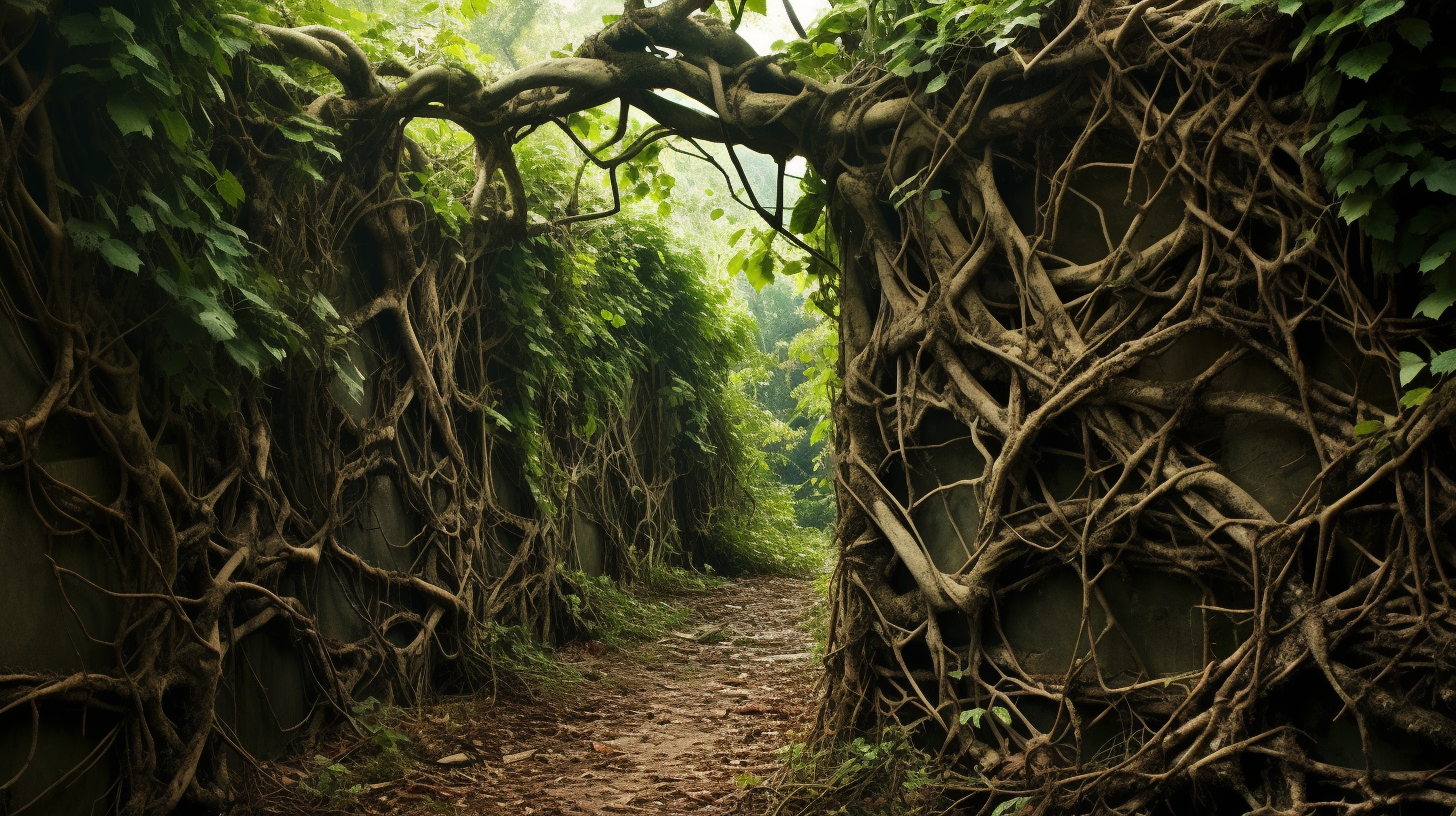The world we meander through today stands testament to the profound and silent conquests nature inflicts upon itself. The greenery may seem lush and the landscapes vibrant, yet beneath this mask of vitality lies a sinister narrative: the relentless march of invasive flora.
In ‘Twisted Vines – The Unstoppable Surge of Invasive Flora’, we peer into the daunting invasion our land ecosystems face. With ruthless efficiency, exotic weeds and non-native species strangle native plants and disrupt the delicate equations of life.
Take, for example, the Kudzu vine, dubbed the ‘mile-a-minute plant’, and the ‘plant that ate the South’. Native to Asia, these voracious green serpents have slinked their way around trees and structures, smothering everything in a vegetative blanket.
Or consider the Water Hyacinth, once revered for its purple bloom and now cursed for its suffocating spread upon water bodies, annihilating aquatic ecosystems with the same ease a child picks daisies.
The causes behind this apocalyptic flora incursion are as human as the shoes we lace each day. Urban expansion, global trade, and inadvertent transportation of these species have sown seeds of destruction across continents.
Despite herculean efforts to curb their advance – be it through manual labor, chemical warfare, or biological control – these invasive species are crafty survivors. They exploit the very tools meant to uproot them and continue their inexorable sprawl.
Stories of communities coming together, wielding machetes and herbicides in defense of their native green heritage, often end in wearied defeat. The ‘Little Shop of Horrors’ is no longer confined to the silver screen; it’s in our backyards, our parks, and our reserves. The invaders do not rest; they choke, they climb, and they overrun.
Such treacherous green invaders facilitate a cascade of ecological ruin. They outcompete, they consume, they monopolize – leaving behind silent graveyards where once thrived diverse habitats. Birds, insects, and other wildlife bereft of food and shelter wane into ghostly shadows of their former selves.
This proliferation of invasive species not only spells doom for biodiversity but also exerts savage pressures on agriculture, forestry, and even human health. ‘An innocuous weed?’ Some might wonder, oblivious to the lurking nightmare these plants embody.
The prior musings on the ‘Nocuous Bloom’ in our oceans’ depths find chilling parallels on terra firma. From algae to ivy, the message is dreadfully clear: human negligence begets ecological catastrophe.
Yet here we are, whispering tales of apocalypse, etching epitaphs for the Earth we once knew. Our chronicles of decay and loss might not reverse the tide of this horror – but they bear witness to the consequences of human folly.
‘Twisted Vines’ is not a mere elegy; it is a siren call within our existential tempest that reminds us of nature’s indomitable will – a will that respects no boundaries, acknowledges no defeat, and persists without moral or mercy.
